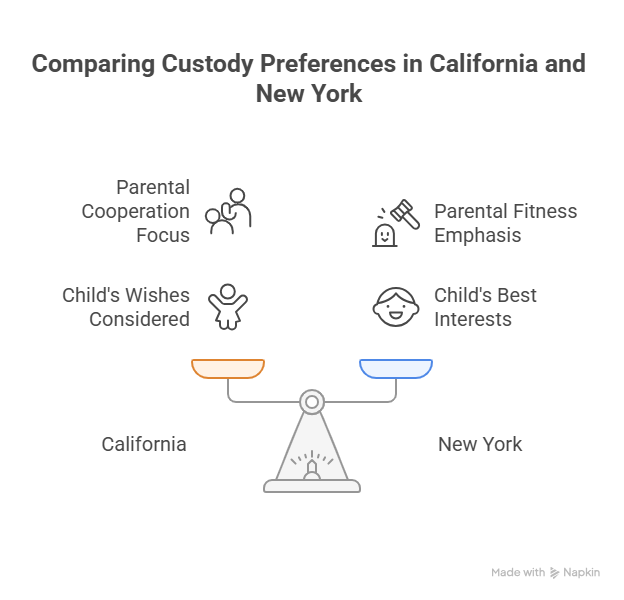Nearly 700,000 parents in the United States go through a custody battle each year, with the courts making decisions that can significantly impact their children’s futures. Understanding what influences these decisions is crucial for parents seeking to maintain a strong relationship with their kids.
When determining custody, courts prioritize the best interests of the child. A child custody attorney can guide parents through this complex process, helping them understand the legal standards and factors that influence custody outcomes.
By knowing what courts look for, parents can better prepare themselves for custody battles, ultimately increasing their chances of achieving a favorable outcome.
The Best Interests of the Child Standard
The court’s primary consideration in child custody cases is the best interests of the child, a standard that encompasses various factors. This principle guides judges in making informed decisions that prioritize the child’s welfare. Consulting a family law attorney can help parents understand how this standard applies to their case.
How Courts Define “Best Interests”
Courts define “best interests” by considering multiple aspects of a child’s life. Key factors include the child’s physical and emotional well-being, as well as their relationship with each parent.
Physical and Emotional Well-being Factors
The court assesses the child’s physical health, emotional stability, and the ability of each parent to provide a nurturing environment. A stable and loving home is crucial for a child’s development.
Age-Appropriate Considerations
The child’s age and needs are also significant. For instance, younger children may require more frequent contact with both parents, while older children may have their preferences considered.
State-by-State Variations in Custody Standards
While the “best interests of the child” is a universal principle, its application varies by state. Some states favor joint custody, while others prioritize sole custody arrangements based on specific circumstances. Understanding custody rights and how they are applied in your state is crucial.
Common Legal Frameworks
| State | Custody Preference | Key Considerations |
|---|---|---|
| California | Joint Custody | Parental cooperation, child’s wishes |
| New York | Sole Custody | Parental fitness, child’s best interests |

Recent Legal Trends
Recent trends show a shift towards more flexible custody arrangements, including shared parenting plans that allow for both parents to be actively involved in the child’s life.
Key Factors Courts Consider in Child Custody Cases
When determining child custody, courts consider several crucial factors that impact the well-being of the child. Understanding these factors can help parents prepare for custody proceedings.
Parental Ability and Home Environment
The court assesses the ability of each parent to provide a stable and nurturing environment. This includes evaluating financial stability and resources, as well as safety and living conditions.
Financial Stability and Resources
A parent’s financial stability is crucial in providing for the child’s needs, including education and healthcare.
Safety and Living Conditions
The court examines the safety and suitability of each parent’s living conditions to ensure the child’s well-being.
Child’s Relationship with Each Parent
The court considers the child’s relationship with each parent, including historical caregiving roles and emotional bonds and attachment.
Types of Custody Arrangements
Courts may award joint or sole custody, and decide on legal vs. physical custody arrangements. Consulting a child custody lawyer can help parents understand their options and the implications of each arrangement.
How a Child Custody Attorney Can Strengthen Your Case
When facing a child custody dispute, having an experienced attorney by your side can make a substantial difference in the outcome. A skilled child custody attorney can help you navigate the complex legal landscape and ensure that your rights are protected.
Legal Strategy Development
A well-crafted legal strategy is crucial in child custody cases. This involves assessing your case, identifying potential weaknesses, and developing a plan to address them.
Case Assessment and Planning
An attorney will assess the specifics of your case, including the details of your relationship with your child and the other parent, to develop a tailored strategy.
Addressing Potential Weaknesses
Identifying and addressing potential weaknesses in your case can help prevent surprises during the proceedings.
Evidence Collection and Presentation
Gathering and presenting evidence is critical in child custody cases. This can include documentation of your relationship with your child, records of your involvement in their life, and testimony from witnesses.
Documentation Requirements
Proper documentation is essential. This may include records of visitation, communication with the other parent, and any relevant court orders.
Witness Testimony Preparation
Witnesses can provide valuable testimony in support of your case. An attorney can help prepare you and other witnesses for court.
Common Mistakes to Avoid During Proceedings
Avoiding common pitfalls during child custody proceedings can significantly impact the outcome of your case.
Social Media and Communication Pitfalls
Be cautious with your social media activity and communication with the other parent, as these can be used as evidence against you.
Co-Parenting Behavior During Litigation
Maintaining a cooperative co-parenting relationship, even during litigation, can demonstrate your commitment to your child’s well-being.
| Key Actions | Benefits |
|---|---|
| Develop a legal strategy | Strengthens your case |
| Gather evidence | Supports your custody claim |
| Avoid common mistakes | Prevents negative impact on your case |
Conclusion: Preparing for Your Child Custody Case
Navigating a child custody case can be challenging, but understanding what the courts look for is crucial. The best interests of the child standard guides the court’s decision, whether it’s awarding sole custody to one parent or establishing a co-parenting agreement.
A skilled child custody attorney can significantly strengthen your case by developing a tailored legal strategy and effectively presenting evidence. By avoiding common mistakes during proceedings, you can improve your chances of achieving a favorable outcome.
Preparation is key to a successful child custody case. By understanding the factors that courts consider and seeking professional guidance, you can confidently navigate the complexities of custody laws and work towards a resolution that serves the best interests of your child.
FAQ
What is the primary consideration for courts when making child custody decisions?
The primary consideration is the best interests of the child standard, which involves evaluating factors such as the child’s physical and emotional well-being, their relationship with each parent, and the parents’ ability to provide a stable and loving environment.
How do courts determine the best interests of the child?
Courts consider various factors, including the child’s age, needs, and circumstances, as well as the parents’ ability to cooperate and make decisions in the child’s best interests. They may also consider expert testimony, such as from psychologists or social workers, and review relevant documentation, like medical records or school reports.
What is the difference between joint custody and sole custody?
Joint custody involves both parents sharing decision-making responsibilities and/or physical custody of the child, while sole custody grants one parent exclusive decision-making authority and/or physical custody. The specific arrangement depends on the circumstances and the best interests of the child.
Can a child custody attorney help me with my case?
Yes, a child custody attorney can provide valuable guidance and representation throughout the custody process. They can help you understand your rights, develop a legal strategy, and present your case in court, increasing the chances of a favorable outcome.
What are some common mistakes to avoid during child custody proceedings?
Common mistakes include posting inappropriate content on social media, failing to cooperate with the other parent, and not following court orders. It’s essential to be mindful of your behavior and communication during this time to avoid harming your case.
How can I strengthen my child custody case?
To strengthen your case, it’s crucial to maintain a stable and loving home environment, demonstrate a willingness to cooperate with the other parent, and provide documentation that supports your custody claim, such as records of your involvement in the child’s life and your ability to provide for their needs.
What is the role of a co-parenting agreement in child custody cases?
A co-parenting agreement outlines the terms of custody and visitation, providing a clear understanding of each parent’s responsibilities and rights. This can help reduce conflict and provide a stable environment for the child, making it an essential component of many child custody cases.

